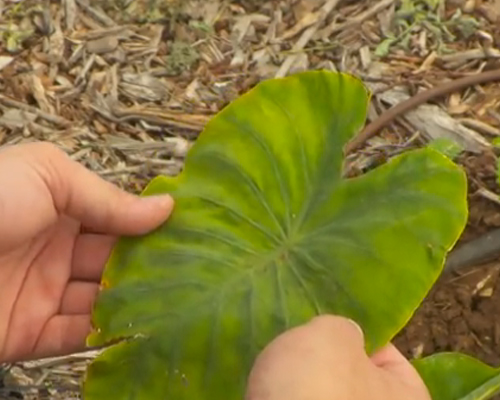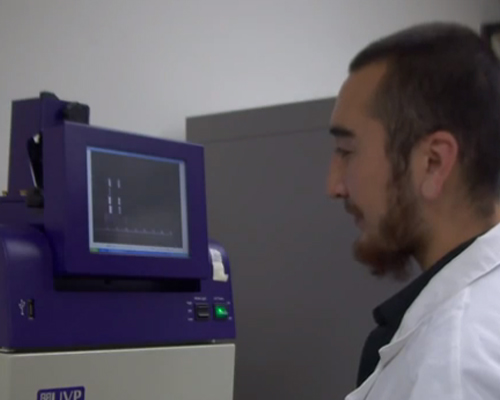James Carrillo Discovers a New Taro Virus
Passion for gardening and plants cultivated an interest in molecular science
It’s not every day that a community college student makes a new scientific discovery. Yet, that’s exactly what happened when James Carrillo was still a student in Leeward Community College’s Plant Bioscience Technology program. He sequenced the DNA for a taro virus that had never been previously identified.
“I wasn’t looking to discover something new,” explained Carrillo. “It was great, but the experience of actually doing the work and actually learning how to do it was most important to me.”
Carrillo came to Leeward with a love of gardening and plants. “After I came, I got more interested on the molecular side of plants and biology,” he said.
He was recruited to participate in a summer mentoring program through the University of Hawai`i John A. Burns School of Medicine called the Idea Network for Biomedical Research Excellence (INBRE). The goal of the program is to channel students into fields in STEM, an acronym for science, technology, engineering and math.
“We really want to give students projects that give them in-depth, actual research experience rather than cookbook-type of experiences,” said Associate Biology Professor Kabi Neupane, who mentored Carrillo. Dr. Neupane is also one of the principal investigators of this “Growing Our Talent” project.
“Actually working instead of being in a classroom and just learning about it in a textbook–it’s very different and it really helps,” Carrillo added.
Viruses can be found on any plant or in any soil sample. Carrillo discovered this virus in the school’s taro patch.
“It has a smaller genome than other viruses,” he said. “It doesn’t infect the plant itself, but it infects another host like a fungus that lives with the plant.
With a certificate in Plant Bioscience Technology, Carrillo is now at the University of Hawai`i at Mānoa College of Tropical Agriculture and Human Resources, pursuing a degree that he hopes will lead to a career involving genetics and plant biotechnology.
“Leeward has helped me a lot in planning for my future and college education and career,” he said appreciatively.
Since he discovered the virus, he got to name it. He called it the Leeward Taro Virus. “It just seemed fitting.”


